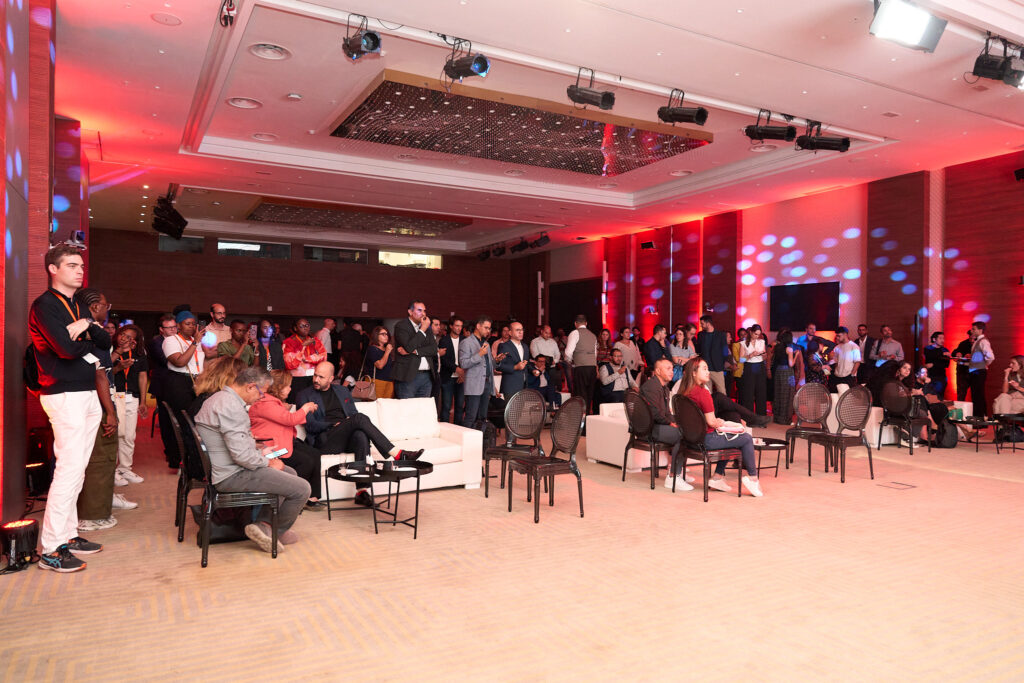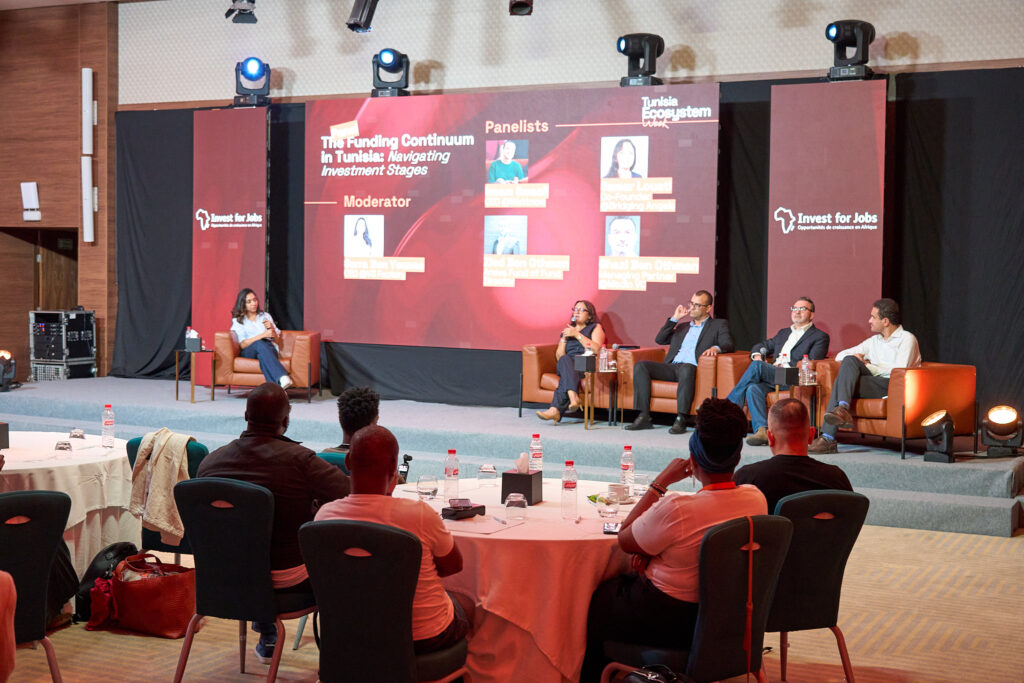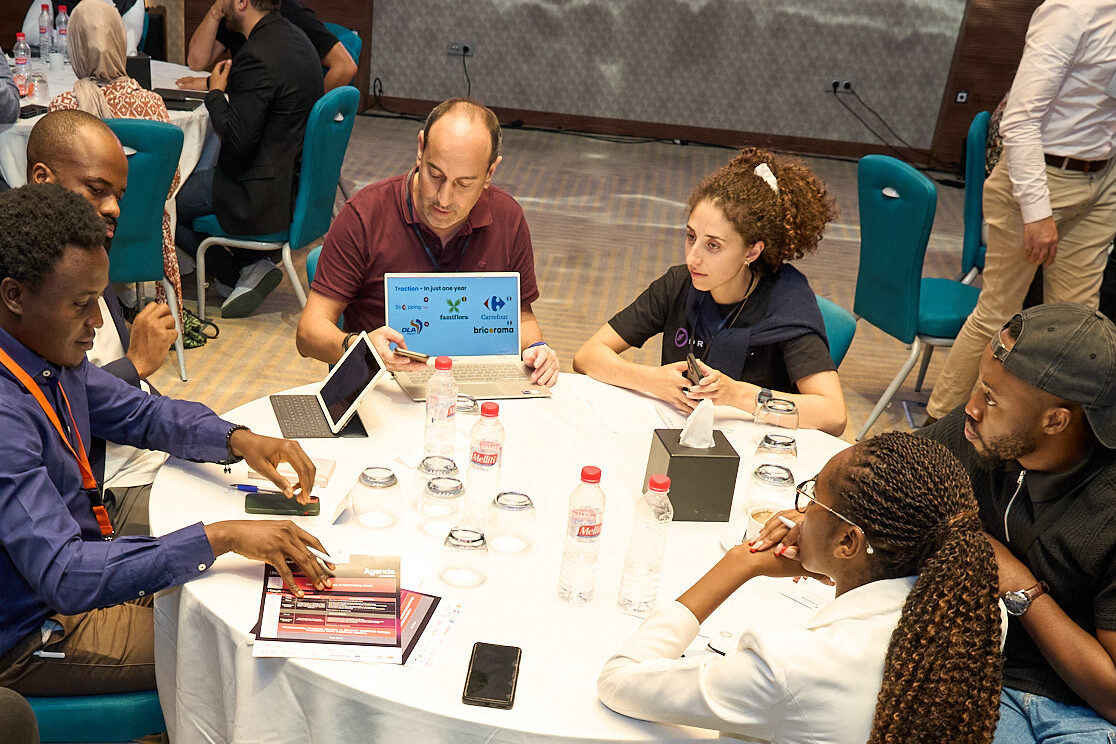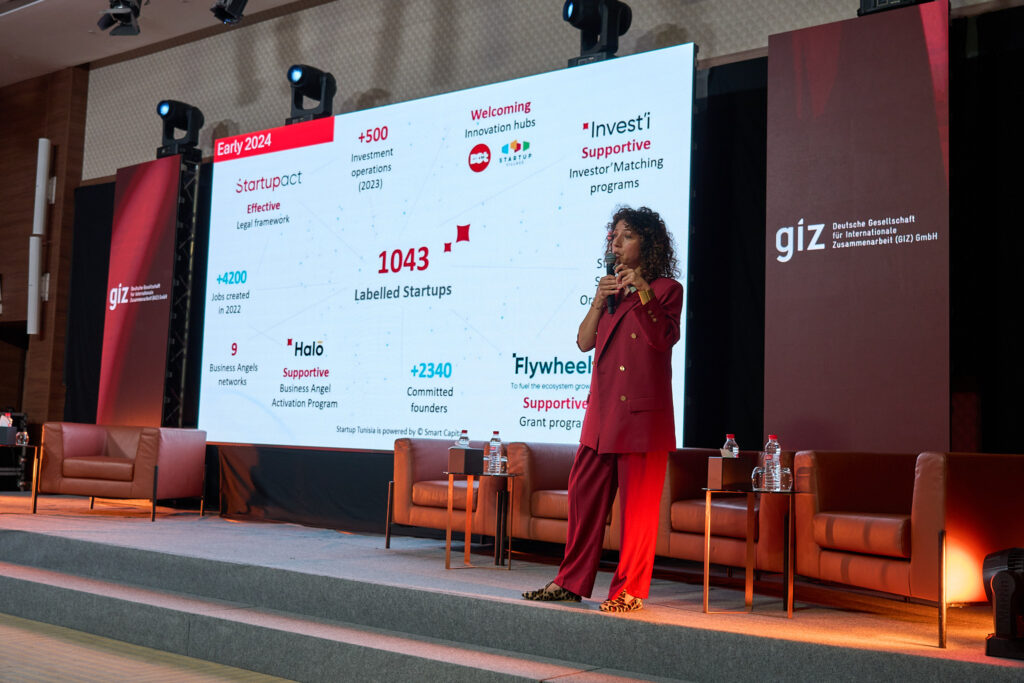Tunisia, Africa’s northernmost country, often flies under the radar in discussions about the continent’s tech and startup ecosystems.
You might have heard of Tunisia through the historic exit of InstaDeep, which marked the largest M&A deal in Africa last year. In many ways, InstaDeep epitomises the typical archetype of a Tunisian startup: a deep-tech solution, born in Tunisia, headquartered in the UK, and eventually acquired by a German company.
To spotlight the country’s startup potential, Dream VC, an investor accelerator, and V3 Factory, a startup advisory firm, organised an immersive experience designed to showcase Tunisia’s innovation landscape. The event, dubbed the “Tunisian Ecosystem Week (TEW) 2024,” ran from November 4 to November 6, 2024, at the prestigious Royal Asbu Hotel in Tunis, the nation’s capital.
The three-day program brought together over 70 founders, investors, and ecosystem stakeholders for a deep dive into Tunisia’s burgeoning startup scene. The agenda included a mix of keynotes, panel discussions, thematic tracks, and startup-investor matchmaking sessions, offering participants a comprehensive view of the opportunities and challenges in the Tunisian startup ecosystem.

So, here are five things you need to know about Tunisia as a startup and ecosystem stakeholder.
I. Tunisian startups are “default global”
To be “default global” means to see the world as your market from day one. This concept became strikingly clear during the opening keynote by Sarra Ben Younes (CEO of V3 Factory), which explored the trends and dynamics shaping Tunisia’s startup ecosystem.
Three pillars make Tunisian startups inherently default global:
- Modest population size
Tunisia’s population stands at around 12 million. While substantial, it is not large enough to sustain multi-billion-dollar businesses on domestic sales alone. For startups aiming for outsized returns, expanding geographically is not just an option—it’s a necessity. - Prime geographic positioning
Tunisia’s location is a natural springboard for international growth. Positioned at the crossroads of Europe, the Middle East and North Africa (MENA), and sub-Saharan Africa, Tunisian businesses benefit from proximity to key markets. The logistical ease of reaching these regions facilitates the movement of goods and people to foreign hubs and expansion markets. - Cultural and Linguistic Diversity
One of the biggest hurdles in global expansion is adapting to new cultures and languages. Tunisia’s rich cultural heritage—shaped by influences from the Ottoman Empire, French colonization, and beyond—has left its population uniquely equipped to bridge global divides. Tunisians typically speak three major global languages: Arabic, French, and English, making cross-border communication and integration far easier.
In addition, trade agreements with Tunisia offer access to over 100 countries. Thereby, connecting entrepreneurs to markets with a combined consumer base of over two billion people.

2. A high density of technical talents, boasting gender parity
Tunisia places a premium on education, which is both free and compulsory for learners aged six to 16. This emphasis has resulted in Tunisia boasting the second most-educated population in North Africa and ranking ninth in Africa overall.
As students progress, the country implements policies to nudge them toward technical and scientific disciplines. This focus has positioned Tunisia ahead of global tech hubs like India and the UK in the percentage of STEM graduates.
While the high density of tech talent in Tunisia has led to some brain drain—global companies often recruit Tunisian talent—it also creates opportunities. Tunisian professionals gain world-class experience abroad and often bring their expertise back home, further strengthening the local ecosystem.
What sets Tunisia apart is its gender parity in STEM fields. According to the World Economic Forum, globally, 72% of scientific researchers are men, with only one in five countries achieving gender parity. Tunisia is one of the rare countries where women account for 50% of scientific researchers.
This gender balance, combined with a strong emphasis on research, means that many Tunisian tech professionals gravitate toward DeepTech solutions, a defining characteristic of the country’s startup ecosystem.
3. DeepTech, not Fintech, leads Tunisia’s startup ecosystem

While much of Africa has fintech as its dominant sector, Tunisia stands out with DeepTech (including software, big data, and analytics) reigning supreme.
At one of the matchmaking session desks during TEW 2024, none of the pitching startups were in fintech. Instead, the lineup showcased innovation across various industries, e.g.:
- An AI-driven platform that predicts shoplifting through behavioural analytics, Anavid.ai
- Dabchy, a marketplace for second-hand fashion that has scaled to serve 10% of Tunisia’s population
- A startup making electric vehicles, Bako Motors and
- WaterSec, a startup developing smart water management solutions to help residents conserve resources
It’s no surprise that Tunisia’s first major acquisition was InstaDeep, a DeepTech pioneer using AI to deliver enterprise solutions long before ChatGPT made AI mainstream.
That said, Tunisia does have notable fintech players, such as Expensya, acquired by Medius) for over $100 million. However, its core value proposition—using AI for seamless expense management—still aligns with the country’s strength in software and analytics.
In summary, software, big data, and analytics dominate Tunisia’s startup ecosystem, followed by e-commerce & marketplace solutions and health & biotech innovations.
4. Pioneers of The Startup Act and models of PPP
Salma Baghdadi (Former Ecosystem Director, Smart Capital and CEO, Ujenzi) delivered a keynote showcasing Tunisia as the continental pioneer of The Startup Act programme that is now being adopted across multiple African countries.

Countries like Nigeria, Senegal, and Congo have already implemented their Startup Act while Ghana, Kenya, Ethiopia and Uganda are in the process.
Tunisia has a national programme, Startup Tunisia, targeted at attracting and nurturing innovation in the country. It relies on three main pillars: The Startup Act— providing the legal framework, Startup Invest—the investment framework and Startup Empower—the support framework.
Smart Capital, a public-private partnership, operates the Startup Tunisia Initiative. It’s a publicly-owned but privately managed company that is authorised by the country’s Financial Markets Council. Being publicly-owned allows for impact accountability while private management allows for operational efficiency. For instance, all applications to be labelled a startup under the Act must be decided within a month, otherwise, the startup automatically gets the label (certificate) and its attending benefits.
There are 20 incentives to be labelled as a Startup under the Act, and these incentives cater to the founder, company, and investor.
The Startup Act has helped to derisk entrepreneurship since it was implemented in 2018. By offering a salary to founders with new startups, and allowing for an entrepreneurial trial period (one-year sabbatical from employer), more potential founders are encouraged to leap into entrepreneurship.
5. Where are Tunisians in the diaspora?
Diasporans contribute significantly to the economies of their home countries through skills, remittances and other development-focused initiatives. Also, entrepreneurial-minded people tend to build products aimed at diasporans because of their higher purchasing power. Hence, why it’s worth tracking overall.
While the Tunisian diaspora is spread over the world, particularly in Europe, one country, France has one million Tunisians. Other countries where Tunisians can be found include Germany (home to InstaDeep‘s parent company), and Italy (the first country to widely promote a Startup Act).
These diasporans often act as investors in the Tunisian ecosystem, either directly as business angels or as limited partners in funds. Also, the operators amongst them return to situate their tech hub in the country, thanks to the quality of the tech talent in the country, and the lower cost of operating compared to Europe. For instance, one Euro will fetch over three Tunisian dinars.
—
A lot was shared during the Tunisian Ecosystem Week 2024. Condia was a media partner for the event. This article is part of a series of highlights from the event.
TEW 2024 was supported by: The Special Initiative “Decent Work for a Just Transition” under the Invest for Jobs brand mandated by the German Federal Ministry for Economic Cooperation and Development (BMZ), Deutsche Gesellschaft für Internationale Zusammenarbeit (GIZ) GmbH and implemented by GIZ Tunisie through its Digital Transformation Center. Also supported by Caisse des Dépôts et Consignations (CDC), The World Bank Group, Smart Capital, Agence Française de Développement, Expertise France, Qawafel, and Madica, and Orange Tunisie. In partnership with Impact Partner supported by Impact Europe as part of the EU-funded Impact Together project, and The Dot.
Get passive updates on African tech & startups
View and choose the stories to interact with on our WhatsApp Channel
Explore





